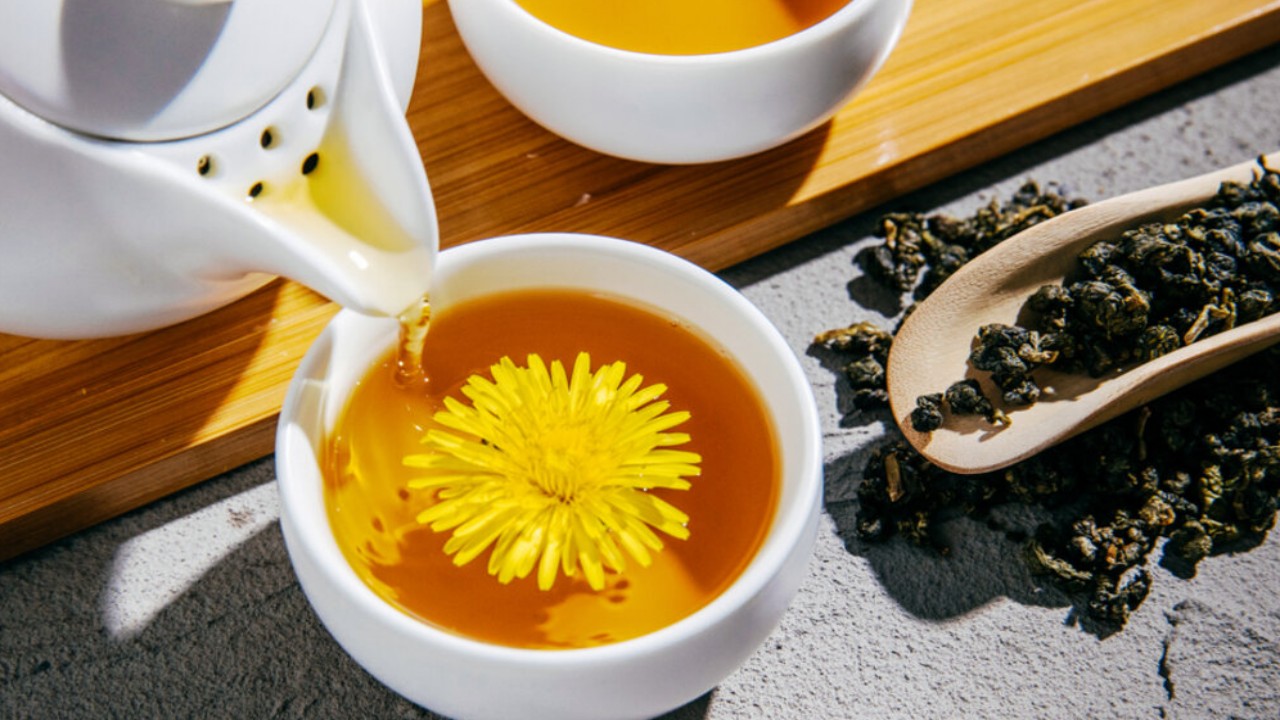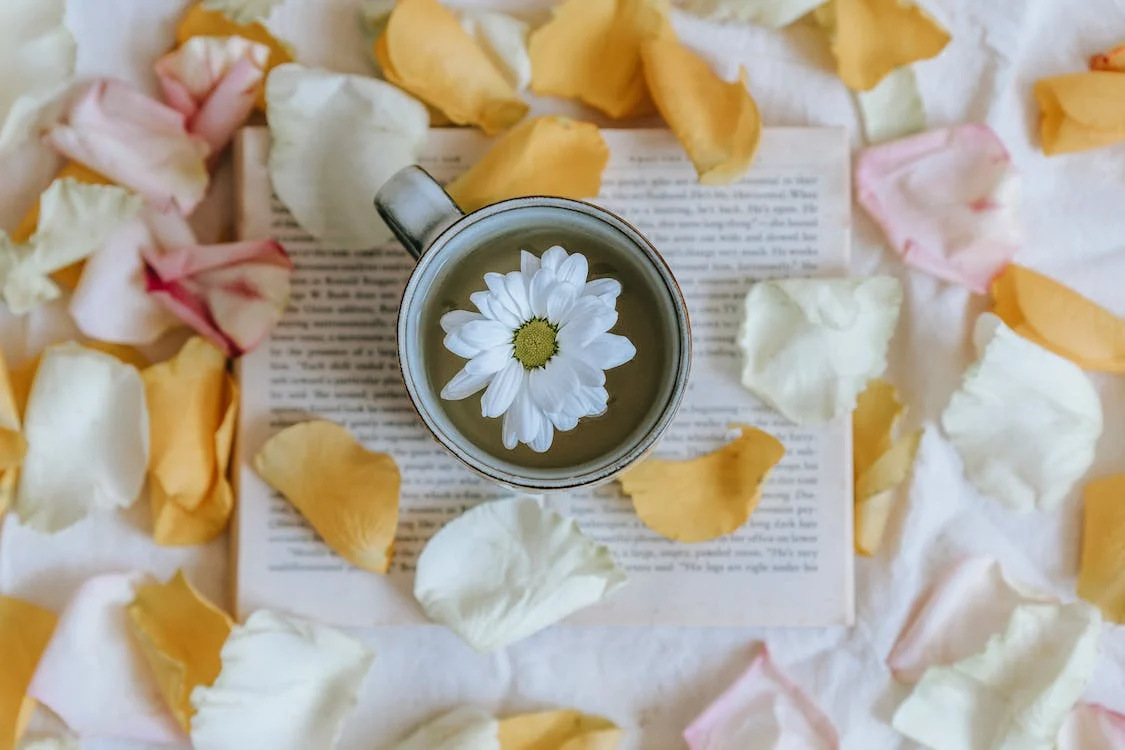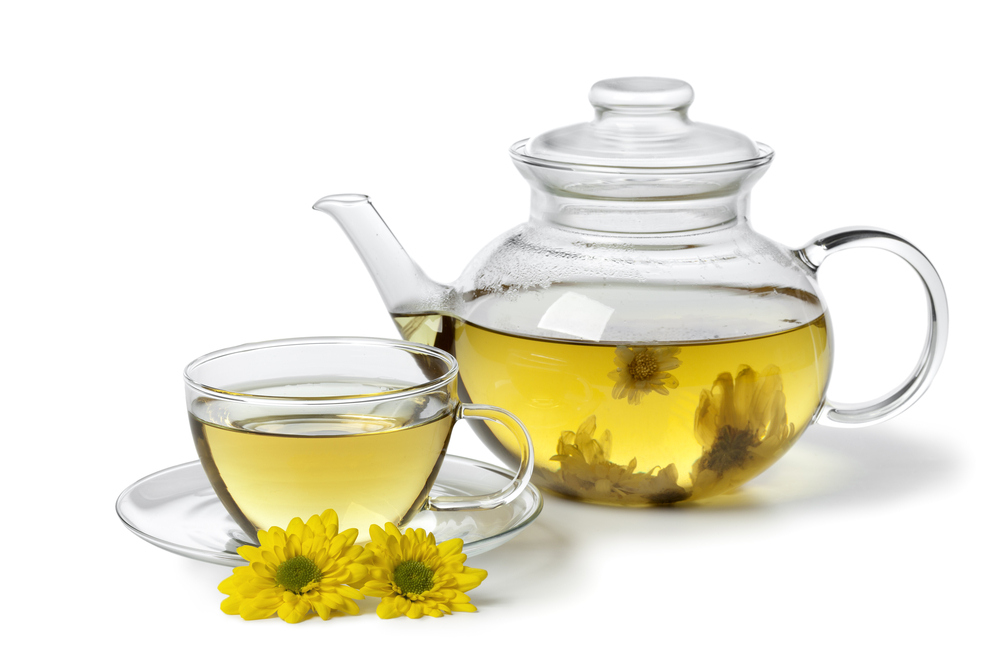10 Health Benefits of Chrysanthemum Tea That You Shouldn’t Miss
The health benefits of chrysanthemum tea are deeply rooted in traditional Chinese medicine. Here, let's uncover the nutritional significance of this herbal tea.

Chrysanthemums or shortly 'mums' are commonly found in homes and gardens, adding beauty and color. They're even found in kitchens, brewed into tea. Yet, the health benefits of chrysanthemum tea are often missed. It is one of the earliest and the most-loved herbal teas in Asia that originated thousands of years back. The tea is filled with antioxidant and anti-inflammatory powers that offer a boost to our health. Traditional Chinese medicine harnessed its potential for blood pressure, eyesight, and liver health. Scroll down to learn more about the benefits of chrysanthemum flower tea.
What Is Chrysanthemum Tea?

Chrysanthemums are flowering plants from East Asia, that aren't just for their looks and decorative value. These edible flowers are used for controlling pests, and even in cooking. The chrysanthemum tea, made from white or yellow flowers, is a soothing drink with a floral aroma. You can also blanch the leaves and stalks for salads.
How to Make Chrysanthemum Tea:
- Take a teapot, cup, or glass, depending on how much tea you want to make.
- Add a handful of dried chrysanthemum flowers to your chosen container.
- Carefully pour the hot water over the chrysanthemum flowers. The water should be around 90 to 95 degrees Celsius (not boiling).
- Allow the flowers to steep in the hot water for 3 to 5 minutes. This will help the flavors and aromas infuse into the water.
- You can strain out the flowers or leave them in, depending on your preference.
- You can actually reuse the chrysanthemum flowers for 2- to 3 more batches of tea by simply adding more water. Its strong flavor allows you to enjoy multiple servings from a single batch.
- If you prefer your tea on the sweeter side, you can add a bit of rock sugar or cane sugar to taste.
Originating in China, this infusion is loaded with antioxidants, vitamins, and more. Natural healers have valued its medicinal uses for ages, making it a nourishing and delightful drink. Here, let's dive deeper into the properties and the array of health benefits of chrysanthemum tea.
Chrysanthemum Properties And Nutritional Value
Chrysanthemum tea's magic happens when these flowers are boiled in water, infusing it with color, flavor, and nutrients, resulting in the following properties:
- Color: The dried chrysanthemum flowers create a lovely golden hue in the tea.
- Flavor: Its taste is gentle and flowery, akin to chamomile but with a refreshing and mild essence.
This tea is low in fat and sugar, making it a healthy choice. Notably, traditional medicine frequently incorporates this herbal tea. It’s also rich in potassium and thus combats significant health risks such as diabetes, stroke, and heart disease (1), (2). Moreover, it serves as a remarkable source of essential minerals and vitamins such as
- Magnesium
- Phosphorus
- Calcium
- Iron
- Vitamin A
- Vitamin C
Plus, it contains vital antioxidants like flavonoids (3), (4).
Chrysanthemum tea imparts slightly cold energy, reflecting its energetic properties. It's also loaded with:
- Anti-inflammatory properties
- Antioxidant properties
- Antimicrobial and antiviral properties
Chrysanthemums may even aid in curbing obesity. A 2019 study found that chrysanthemum leaf extract helped prevent obesity in mice (5). All these properties unite to form the benefits of chrysanthemum Chinese tea.
What Are the Benefits of Chrysanthemum Tea?

Chrysanthemum tea or Gukhwa-cha has been in Chinese medicine for several years due to its nutritional value and properties. In traditional medicine, it's recommended for fighting fevers and early cold symptoms. It is also used to help with headaches, eye pain, high blood pressure, and sore throats (6).
Top 10 Health Benefits of Chrysanthemum Tea
1. Lowers Blood Pressure & Relaxes
Chrysanthemum has been a traditional aid for generations in lowering blood pressure, cooling the body, and reducing inflammation, all contributing to a sense of calmness (7). Its antioxidants and minerals assist the body in self-regulation and the elimination of stress hormones from the blood.
2. Promotes Heart Health
Research has shown connections between chrysanthemum tea and reduced blood pressure, offering potential relief from coronary artery diseases (8). This herbal tea is believed to be a potential long-term preventive option for various cardiovascular problems, including heart attacks, strokes, and atherosclerosis, due to its ability to lower blood pressure and cholesterol levels. This blood pressure-lowering effect is primarily attributed to the infusion's potassium content, known for its vasodilating properties (2).
3. Remedy for Hangover
While chrysanthemum tea might not be your initial go-to for a hangover, research suggests that it could actually be a beneficial choice. A study found that drinking chrysanthemum tea can enhance alcohol metabolism, aiding your body in breaking down and eliminating alcohol. Additionally, this tea offers protection to your liver from alcohol-related damage (9). While it won't entirely reverse a night of excessive drinking, chrysanthemum tea can certainly alleviate some of the unpleasant after-effects.
4. Fighting Bacteria
Chrysanthemum flowers' essential oils have proven antibacterial and antimicrobial effects. These properties can help stop the growth and transmission of bacteria and other microorganisms (10). Even though only a small amount of these oils is present in the steeped tea, it can still contribute to infection prevention, particularly when combined with the plant's other minerals.
5. Anti-inflammatory Properties
Inflammation is the body's way of sending immune cells to fight infections or heal injuries. But too much inflammation can be harmful, leading to chronic conditions like arthritis, diabetes, and heart disease (11). Chrysanthemum flowers contain compounds like flavonoids and phenolic acids, which can help fight inflammation and may prevent these chronic diseases (12).
6. Skin Care
Chrysanthemum tea is packed with beta-carotene, which turns into vitamin A, a valuable nutrient for various bodily functions. Vitamin A acts as an antioxidant, combating oxidative stress and damaged cells throughout the body (13). Chrysanthemum tea has a history of topical use due to these benefits. They help to clear head lice, soothe skin irritation, redness, and chronic conditions like eczema and psoriasis (14), (15). Its antioxidant content also aids in reducing signs of aging, wrinkles, and blemishes.
7. Improves Vision
Rich in beta-carotene and vitamin A, chrysanthemum tea supports eye health. Vitamin A, known for its antioxidant properties, offers protection against retinal issues, cataracts, macular degeneration, and other eye-related problems, including blurry vision (16), (17).
8. Stronger Bones
Surprisingly, chrysanthemum tea offers benefits for bone health and osteoporosis prevention (18). Its unique mineral content, making it a super herbal flower tea, sets it apart. Chrysanthemum extract has shown potential in enhancing bone mineral density, making it a great choice to incorporate into your routine.
9. Boosts Metabolism
Chrysanthemums contain various types of Vitamin B, such as folic acid, choline, niacin, and riboflavin. These vitamins play a crucial role in bodily functions, including growth, hormonal balance, circulation, and neurotransmitter activity (6).
10. Promotes Immunity
Chrysanthemum tea is rich in essential vitamins like C and A, vital for a strong immune function (19), (20). Vitamin C aids white blood cell production and acts as an antioxidant against free radicals. The tea also provides essential minerals like magnesium, calcium, and iron, all crucial for supporting a robust immune system (21).
Any Side Effects of Chrysanthemum Tea?
Chrysanthemum tea, crafted from the delicate petals of the vibrant chrysanthemum flowers, comes packed with essential nutrients, antioxidants, beta-carotene, and valuable minerals, offering a bouquet of health benefits.
Allergy - Yet, a word of caution is in order. While this tea brings goodness, excessive consumption might trigger allergic reactions, especially for those sensitive to ragweed. Such individuals could experience skin irritation, itchiness, rashes, redness, itching, or sometimes even anaphylaxis after sipping this brew (22). Even greenhouse workers cultivating chrysanthemums have reported these allergies in a scientific study (23).
Pesticides - Certain chrysanthemum varieties contain pyrethrum, a compound used in many pesticides. This compound is capable of causing skin and lung irritation upon contact (24). Also, only some varieties of chrysanthemum are edible, and not all are cultivated for ingestion. Avoid consuming flowers from florists or markets, as these are meant solely for decorative purposes and could be laden with pesticides or chemicals.
Cooling properties - Moderation is key, as daily chrysanthemum tea intake may lead to excessive cooling of the body which might sound like a good thing. But anything in excess might hold a flip side. Thus excessive body cooling is not recommended.
Interaction with medication - Furthermore, chrysanthemums might interact with prescription medications. A 2015 study suggested potential interactions between chrysanthemum and several statins drugs aimed at lowering cholesterol (25).
As per our contributor Dr. Allen Conrad, Doctor of Chiropractic at Montgomery County Chiropractic Center, “Chrysanthemum tea should be taken in the morning, as many teas have caffeine which may keep you awake at night. It does have antispasmodic properties. However, it may interact with certain medications like cholesterol medications or those which involve the immune system or respiratory conditions. One must consult a doctor before to see if taking this tea is ok and doesn’t interact with any current medications.”
Pregnant women - For pregnant or nursing mothers, the limited research makes it crucial to consult your doctor before adding chrysanthemum tea to your regimen.
Conclusion
The health benefits of chrysanthemum tea are brought on by brewing its delicate petals in hot water. Drinking this tea daily can bring freshness and cool energy. It is packed with antioxidants and nutrients that can benefit your heart, skin, and eyes. You can find chrysanthemum tea in stores, but look for unsweetened, natural options. Tea bags might have added flavoring and sugar, so loose flowers are better. But remember, too much can trigger allergies, especially if you're sensitive to ragweed. So, moderation is key. Also, consult your doctor, especially if you're on medication.
Contributor: Dr. Allen Conrad, BS, DC, CSCS, and Owner of Montgomery County Chiropractic Center





 JOIN OUR WHATSAPP CHANNEL
JOIN OUR WHATSAPP CHANNEL






















































